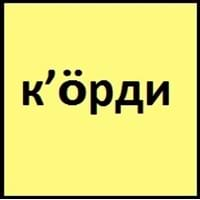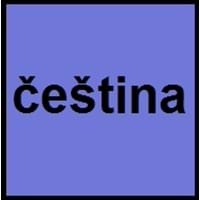Countries
Iraq, Kurdistan
Czech Republic, European Union
National Language
Azerbaijan, Georgia, Iran, Iraq, Syria, Turkey
Czech Republic
Second Language
Not spoken in any of the countries
Not spoken in any of the countries
Speaking Continents
Middle East
Europe
Minority Language
Not spoken in any of the countries
Austria, Croatia, Germany, Slovakia
Regulated By
Not Available
Institute of the Czech Language
Interesting Facts
- The vocabulary in Kurdish is of Iranian origin.
- In the middle East, Kurdish is the fourth largest ethnic group.
- The Czech language was known as Bohemian as early at 19th century.
- In czech language, there are many words that do not contain vowels.
Similar To
Farsi Language
Polish, Slovak and Sorbian
Derived From
Not Available
Not Available
Alphabets in
Kurdish-Alphabets.jpg#200
Czech-Alphabets.jpg#200
Scripts
Arabic, Cyrillic, Latin
Latin
Writing Direction
Right-To-Left, Horizontal
Left-To-Right, Horizontal
How Are You?
Tu çawa yî?
Jak se máš?
Good Night
Şev xweş
dobrou noc
Good Evening
Evare baş
dobrý večer
Good Afternoon
Nee-wa-rowt bash
dobré odpoledne
Good Morning
Bayanit bash
dobré ráno
I Love You
Ez te hez dikem
Miluji tě
Excuse Me
Bê zehmet
promiňte
Dialect 1
Northern Kurdish
Chod
Where They Speak
northern Iraq, northern Syria, northwest Iran, southeast Turkey
Chodsko, Bohemia
How Many People Speak
Not Available
Dialect 2
Central Kurdish
Lach
Where They Speak
Iraq, Kurdistan Province of western Iran
Czech Silesia, Hlucin, Northeast Moravia
How Many People Speak
Not Available
Dialect 3
Southern Kurdish
Moravian
Where They Speak
Eastern Iraq
Czech Republic, Czech Silesia, Moravia, Slovakia
Native Name
Kurdí / کوردی / к’öрди
čeština / český jazyk
Alternative Names
Not Available
Bohemian, Cestina
French Name
kurde
tchèque
German Name
Kurdisch
Tschechisch
Pronunciation
Not Available
Not Available
Origin
16th century CE
9th Century
Language Family
Indo-European Family
Indo-European Family
Subgroup
Indo-Iranian
Slavic
Branch
Not Available
Western
Early Forms
Not Available
Proto-Czech, Old Czech
Standard Forms
Kurdish
Standard Czech
Language Position
Not Available
Signed Forms
Not Available
Czech Sign Language
Scope
Macrolanguage
Individual
ISO 639 6
Not Available
Not Available
Glottocode
kurd1259
czec1258
Linguasphere
58-AAA-a
53-AAA-da
Language Type
Living
Living
Language Linguistic Typology
Subject-Object-Verb
Not Available
Language Morphological Typology
Not Available
Fusional, Synthetic
All Kurdish and Czech Dialects
Most languages have dialects where each dialect differ from other dialect with respect to grammar and vocabulary. Here you will get to know all Kurdish and Czech dialects. Various dialects of Kurdish and Czech language differ in their pronunciations and words. Dialects of Kurdish are spoken in different Kurdish Speaking Countries whereas Czech Dialects are spoken in different Czech speaking countries. Also the number of people speaking Kurdish vs Czech Dialects varies from few thousands to many millions. Some of the Kurdish dialects include: Northern Kurdish, Central Kurdish. Czech dialects include: Chod , Lach. Also learn about dialects in South American Languages and North American Languages.
Kurdish and Czech Speaking population
Kurdish and Czech speaking population is one of the factors based on which Kurdish and Czech languages can be compared. The total count of Kurdish and Czech Speaking population in percentage is also given. The percentage of people speaking Kurdish language is 0.31 % whereas the percentage of people speaking Czech language is 0.15 %. When we compare the speaking population of any two languages we get to know which of two languages is more popular. Find more details about how many people speak Kurdish and Czech on Kurdish vs Czech where you will get native speakers, speaking population in percentage and native names.
Kurdish and Czech Language Codes
Kurdish and Czech language codes are used in those applications where using language names are tedious. Kurdish and Czech Language Codes include all the international language codes, glottocodes and linguasphere.





